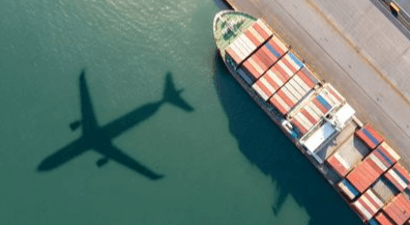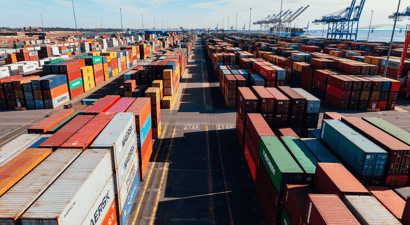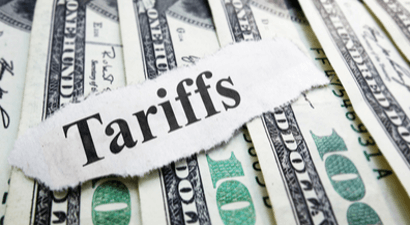Effective implementation of IMO 2020 0.50% sulphur cap and fuel oil non-availability report
The South African Maritime Safety Authority (“SAMSA”) has recently published two Marine Notices, being numbers:
8 of 2019, to advise of the global implementation of the MARPOL Annex VI limit of 0.50 mass per cent concentration (0.50% m/m) sulphur content in fuel oil, for all ships, from 1 January 2020; and
9 of 2019, which provides a standard format for reporting fuel oil non-availability as provided in regulation 18.2.4 of MARPOL Annex VI that may be used to document if a ship is unable to obtain fuel oil compliant with the provisions stipulated in regulations 14.1.3, 14.4.3 and 18.3 of MARPOL Annex VI.
Click below for copies of the two Marine Notices:
The background to these Notices is that from 1 January 2020, ships must operate using compliant fuels of 0.50% sulphur or less unless they are provided with an approved “equivalent” means of compliance. The following points from the two Marine Notices are of particular interest.
Ships installed with exhaust gas cleaning systems (“scrubbers”) can continue to burn high-sulphur bunker fuel from 2020 and comply with the 0.5% sulphur limit and until further notice South Africa accepts all types of approved scrubbers.
South Africa has no restrictions on ships using LNG or Marine Biofuels when entering South African waters.
The International Bunker Industry Association has expressed confidence that low sulphur fuel oil will be available in South African ports by 1 January 2020.
All ships that operate in South African waters will be required to be in compliance with the Annex VI fuel oil sulphur standard.
If a ship is found not to be in compliance with the standards for compliant fuel oils, SAMSA will be entitled to require the ship to:
present a record of the actions taken to attempt to achieve compliance; and
provide evidence that it attempted to purchase compliant fuel oil in accordance with its voyage plan, and if it was not available where planned, that attempts were made to locate alternative sources of such fuel oil, and that despite best efforts to obtain compliant fuel oil, no such fuel oil was available for purchase.
A ship shall notify the South African MRCC and local SAMSA port office of the relevant port of destination when it cannot purchase compliant fuel oil.
Ships will be required to either use Annex VI compliant fuel oil when operating within South African waters or to install and use scrubbers.
Ships will be required to maintain and if requested make available to SAMSA, bunker delivery notes, representative fuel oil samples, written fuel oil changeover procedures and the fuel oil changeover logbook.
SAMSA may also verify compliance by any methods available to it including but not limited to sampling and analysing fuel oil from a ship’s fuel oil tanks and lines and sampling and analysing air emissions from a ship’s plume.
If despite best efforts ships are unable to obtain compliant fuel oil, SAMSA has the authority to take into account all relevant circumstances to determine the appropriate action to take including not taking control measures.
If despite best efforts a ship is unable to procure compliant fuel oil prior to entering South African waters, the Master must notify SAMSA and the vessel’s own Flag Administration.
If ships want SAMSA to consider their efforts in determining what action to be taken, Masters should provide information in the form of a Fuel Oil Non-Availability Report (“FONAR”) detailing the vessel’s efforts to obtain compliant fuel oil.
The FONAR should be submitted as soon as the vessel determines or becomes aware that it will be unable to procure and use compliant fuel oil in South African waters but no later than 96 hours prior to entering the South African Exclusive Economic Zone.
The Master must consider the availability of compliant fuel oil when planning the vessel’s voyage and if compliant fuel oil is not available where planned, the vessel must attempt to locate alternative sources for such fuel oil.
The vessel must attempt to obtain compliant fuel oil at each port on the intended voyage.
SAMSA does not consider having to change berth or anchor within a port in order to receive compliant fuel oil to be a deviation. It expects a vessel operator to take into account these logistical conditions and/or terminal/port policies when planning bunker delivery during a port call.
Once a vessel has entered South African waters, SAMSA expects the vessel to take on compliant fuel oil, if available, from a South African port prior to further transit through South African waters.
SAMSA will give consideration to actions taken to minimise the amount of excess emissions, such as purchase of the next cleanest fuel oil possible.
SAMSA does not consider the cost of compliant fuel oil to be a valid basis for claiming inability to purchase 0.50% m/m fuel oil. Nor is the cost of compliant fuel oil a valid basis for claiming that such fuel oil was not available.
The filing of a FONAR does not mean the ship is deemed to be in compliance with MARPOL Annex VI, but SAMSA will take into account the information provided in the report and all relevant circumstances to determine the appropriate action to take, if any, in response to a MARPOL Annex VI fuel oil sulphur standard violation. The factors that SAMSA will take into consideration are listed in Marine Notice No. 9 of 2019.





